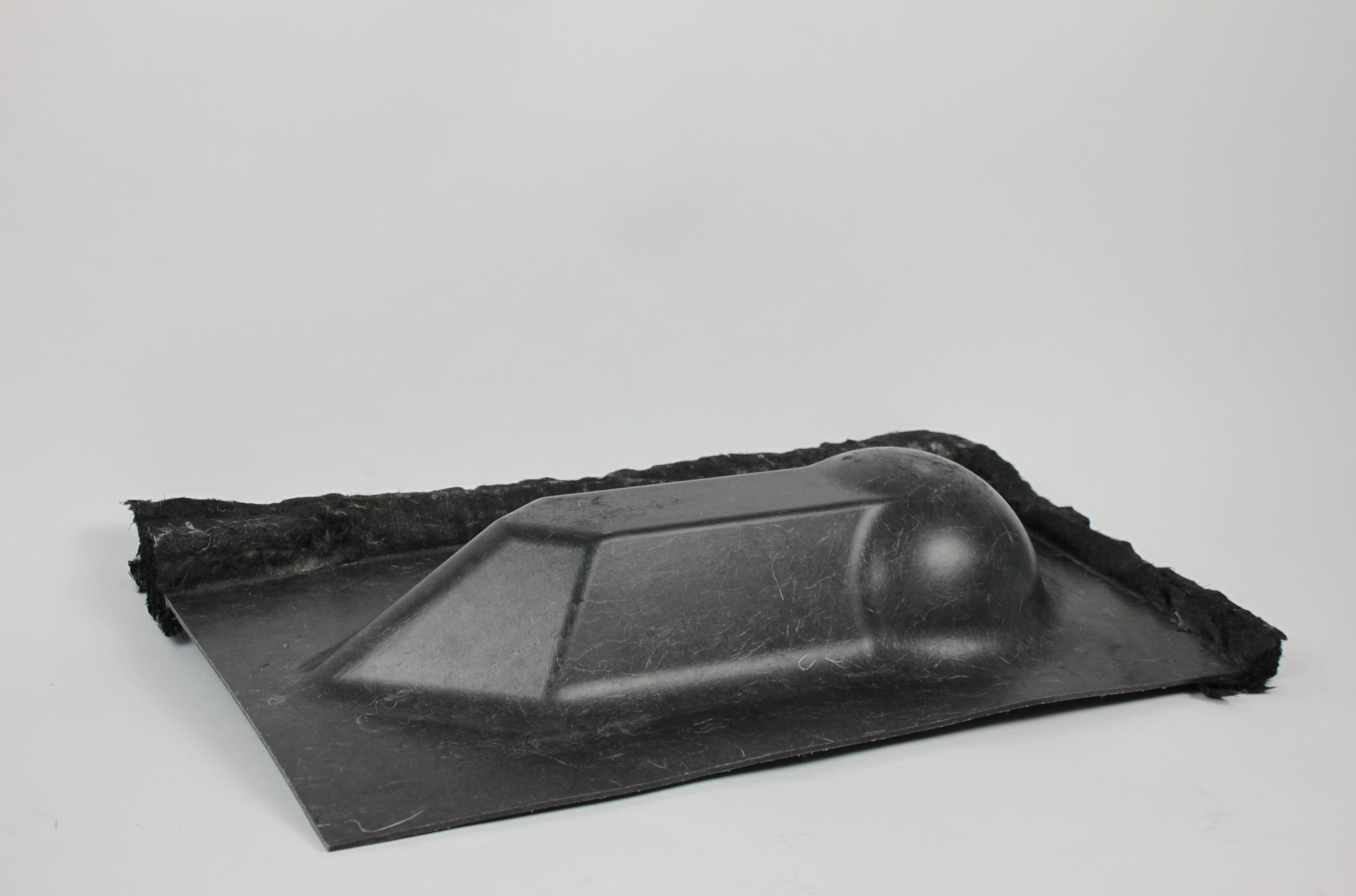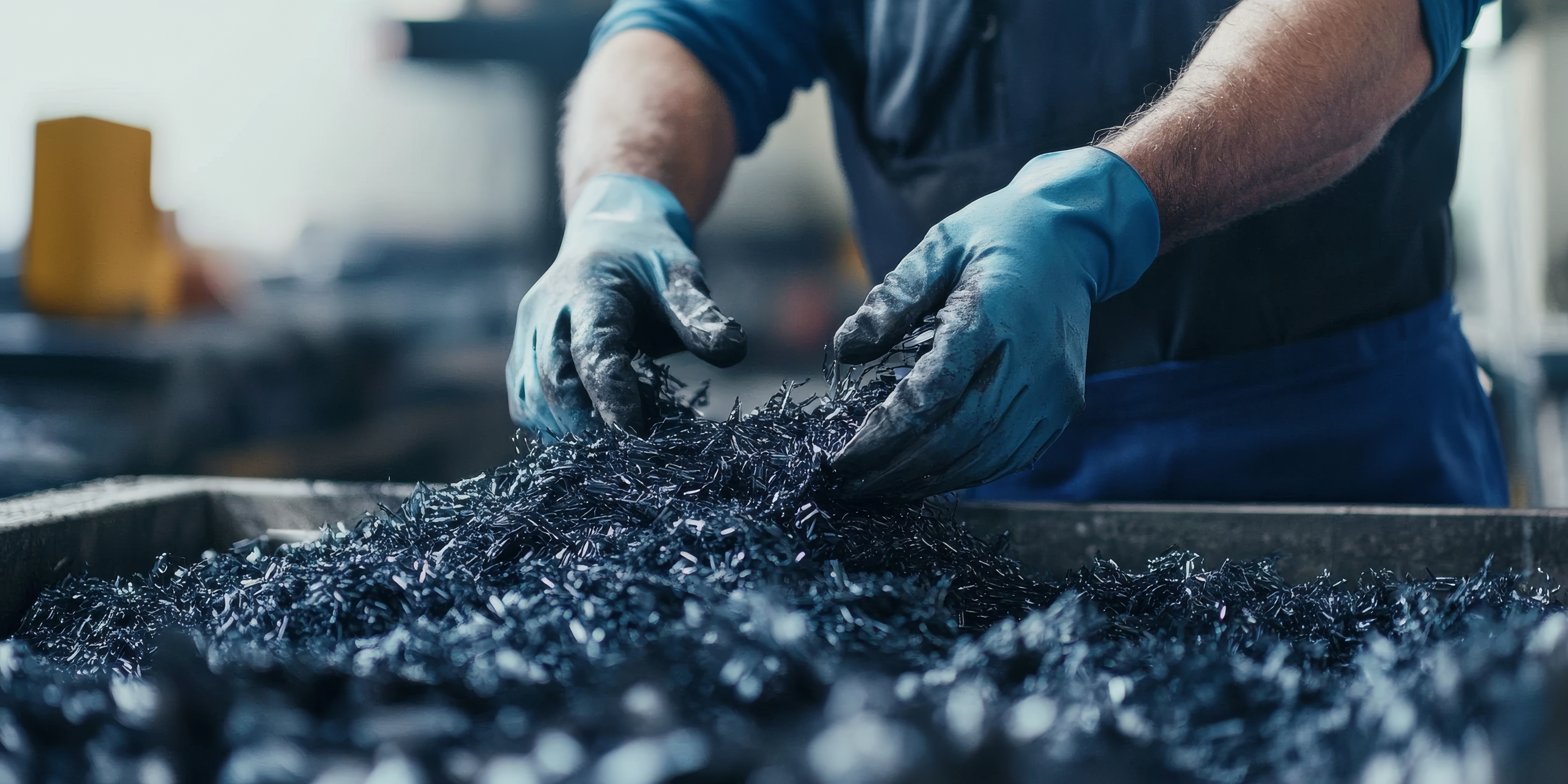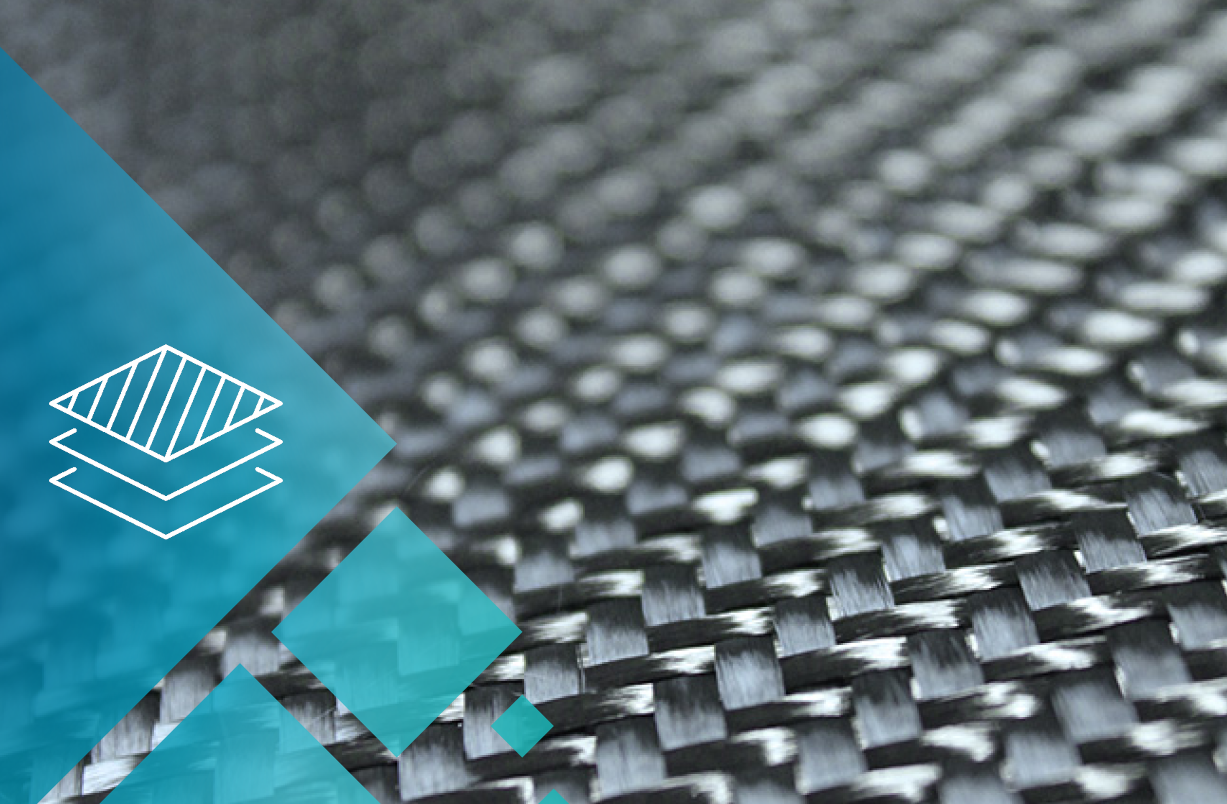Jahr
Year | Titel/Autor:in
Title/Author | Publikationstyp
Publication Type |
|---|
| 2026 |
Recyclingpotenzial von Windenergieanlagen
Trede, Franziska |
Zeitschriftenaufsatz
Journal Article
|
| 2025 |
From Cactus to Composite: Thermo‐Mechanical Analysis of Opuntia Fibers and Insights for Potential Composite Material Applications
Rechsteiner, Fabian; Napolitano, Francesco; Papa, Ilaria; Fiorentino, Andrea; Russo, Pietro; Lopresto, Valentina; Taha, Iman |
Zeitschriftenaufsatz
Journal Article
|
| 2025 |
Rotorblätter zu Fahrradrahmen?
Trede, Franziska |
Zeitschriftenaufsatz
Journal Article
|
| 2025 |
Mechanical performance of sustainable composite material: Wet-laid and dry-laid nonwoven textiles made out of recycled carbon fibers with thermoset and thermoplastic matrices
Rechsteiner, Fabian; Raimondi, Luca; Tegas, Nicola; Donati, Lorenzo; Manis, Frank |
Zeitschriftenaufsatz
Journal Article
|
| 2025 |
Mechanical Properties of Highly Oriented Recycled Carbon Fiber Tapes Using Automated Fiber Placement
Theiss, Julian; Haj Ahmad, Berwan; Manis, Frank; Preinfalck, Miriam; Baz, Stephan |
Zeitschriftenaufsatz
Journal Article
|
| 2024 |
Rotorblätter als Problemabfall
Rechsteiner, Fabian |
Zeitschriftenaufsatz
Journal Article
|
| 2024 |
Projekt Infinity: Hochleistungsfähige Tapes aus recycelten Carbonfasern für den Leichtbau - CO₂-Reduktion durch hochwertige Recyclingprozesse und -materialien
Ellermann, Niels; Guth, Johannes; Stienemann, Jan; Preinfalck, Miriam; Baz, Stephan; Theiss, Julian; Manis, Frank; Angerer, Kerstin; Fliescher, Stefan; Schierl, Stefan |
Zeitschriftenaufsatz
Journal Article
|
| 2024 |
Demonstration and testing of a process chain for the realignment of discontinuous random-oriented recycled carbon fibers into a unidirectional tape
Teichmann, Felix; Schumm, Violetta; Klemm, Christoph; Sauer, Michael; Cetin, Mesut |
Konferenzbeitrag
Conference Paper
|
| 2024 |
Characterisation of composite materials from aligned dry laid nonwovens based on RCF from hydrogen tanks
Schumm, Violetta; Manis, Frank |
Konferenzbeitrag
Conference Paper
|
| 2024 |
Hochleistungsfähige Tapes aus recycelten Carbonfasern für den Leichtbau - CO2-Reduktion durch hochwertige Recyclingprozesse und Materialien
Stienemann, Jan; Fliescher, Stefan; Ellermann, Nils; Guth, Johannes; Giesgen, Lazlo; Weitmeier, Felix; Preinfalck, Miriam; Theiss, Julian; Haj Ahmad, Perwan; Angerer, Kerstin |
Bericht
Report
|
| 2024 |
addform - additiv gefertigte Werkzeuge für das Thermoforming zur kosteneffizienten Realisierung schalenförmiger Faserverbundstrukturen
Erhard, Patricia; Dempfle, Tobias; Weiblen, Leonie |
Zeitschriftenaufsatz
Journal Article
|
| 2024 |
addform - additively manufactured tools for thermoforming for the cost-efficient realisation of fiber reinforced composites
Erhard, Patricia; Dempfle, Tobias; Weiblen, Leonie |
Zeitschriftenaufsatz
Journal Article
|
| 2024 |
Abschlussbericht CaRMA. Carbonfaser Recyclingvliese im Multi-Material-Ansatz
Sauer, Michael; Öttel, Ronny; Höhn, Wolfgang; Baumgärtel, Alexander |
Bericht
Report
|
| 2024 |
MAI ÖkoCaP - Leitfaden
Angerer, Kerstin; Rechsteiner, Fabian |
Bericht
Report
|
| 2024 |
Measurement of interfacial shear strength by means of micromechanical single-fibre pull-out tests
Fliescher, Stefan; Khalid, Marie; Ingelsberger, Erich; Drieling, Axel; Leitner, Bernhard; Faustmann, Jakob; Manis, Frank; Sauze, Stéphanie; Mahmoudi, Mehdi; Frédéric, Goettmann |
Konferenzbeitrag nicht im Tagungsband
Conference Paper not in Proceedings
|
| 2023 |
Portfolio Prüftechnik. Standardisierte und individuelle Material- und Bauteilanalyse
Amann, Petra; Aust, Christina; Faustmann, Jakob; Leitner, Bernhard; Pintore, Manuel; Plangger, Pascal; Langer, Lukas; Schießl, Timo; Schröder, Timo; Taha, Iman |
Buch
Book
|
| 2023 |
Entwicklung eines Thermoplasts und eines dazugehörigen Verarbeitungsprozesses für Recycelte Carbonfasern
Leitner, Bernhard; Manis, Frank; Kimura, Shunta |
Zeitschriftenaufsatz
Journal Article
|
| 2023 |
Development of a thermoplastic material and manufacturing process for recycled carbon fibers
Leitner, Bernhard; Manis, Frank; Kimura, Shunta |
Zeitschriftenaufsatz
Journal Article
|
| 2022 |
Standardizing the Single-Fibre Pull-Out Test for Fibre-Matrix Adhesion Characterization: Method and Insights
Leitner, Bernhard; Manis, Frank; Poitzsch, Claudia; Özcelik, Sude; Khalid, Marie; Ingelsberger, Erich; Fliescher, Stefan; Drieling, Axel; Hartwig, Petra; Dederer, Esther |
Konferenzbeitrag
Conference Paper
|
| 2022 |
RCF-Tapes for Sustainable High Performance Lightweigt Construction
Theiss, Julian; Schumm, Violetta; Sauer, Michael; Manis, Frank |
Konferenzbeitrag
Conference Paper
|
| 2022 |
Non-destructive Testing of Carbon Fiber Nonwoven Using Novel Anisotropic Eddy Current Analysis
Leitner, Bernhard; Machuj, Lisa; Gläser, Artos; Manis, Frank; Stegschuster, Georg; Kupke, Richard |
Konferenzbeitrag
Conference Paper
|
| 2022 |
Auf Knopfdruck - Graphenbasierte Entwurfssprachen zur Prozesskettengestaltung für das Recycling von Composites
Manis, Frank; Bjarsch, Thomas; Holland, Maximilian; Früchtl, Marion |
Zeitschriftenaufsatz
Journal Article
|
| 2021 |
Systematic investigation of the critical fibre length of carbon fibre nonwoven composites
Sauer, Michael; Schumm, Violetta; Drechsler, Klaus |
Konferenzbeitrag
Conference Paper
|
| 2019 |
Recycling process for carbon fiber reinforced plastics with polyamide 6, polyurethane and epoxy matrix by gentle solvent treatment
Knappich, Fabian; Klotz, Magdalena; Schlummer, Martin; Wölling, Jakob; Mäurer, Andreas |
Zeitschriftenaufsatz
Journal Article
|
| 2017 |
Properties of second life carbon fibre reinforced polymers
Manis, F.; Schmieg, M.; Sauer, M.; Drechsler, K. |
Konferenzbeitrag
Conference Paper
|
| 2017 |
Nonwovens from recycled carbon fibres - comparison of processing technologies
Wölling, J.; Schmieg, M.; Manis, F.; Drechsler, K. |
Zeitschriftenaufsatz
Journal Article
|
| 2016 |
Flexible intelligente Bearbeitungstechnologien für komplexe Faserverbundbauteile
Drechsler, Klaus |
Buch
Book
|
| 2016 |
Investigation on the structural behavior of a metallically 3D-reinforced CFRP/CFRP joint using a variable search based on finite element analyzes
Lang, H.; Nogueira, A.C.; Jürgens, M.; Hombergsmeier, E.; Hinterhölzl, R.; Drechsler, K. |
Zeitschriftenaufsatz
Journal Article
|
| 2016 |
Energieeffiziente Herstellung komplexer Hochleistungsfaserverbundbauteile mittels Pultrusion, In-Line Flechten, Blasumformung und Endbearbeitung (PulForm)
| Bericht
Report
|
| 2015 |
Systematische Untersuchung thermischer Prozesse für das Recycling von kohlenstofffaserverstärkten Kunststoffen
Benka, Christopher |
Bachelor Thesis
|
| 2013 |
Ermittlung der mechanischen Eigenschaften von CFK-Patch-Strukturen in Abhängigkeit der Patch - Größe und der prozentualen Verteilung
Sauer, Michael |
Bachelor Thesis
|
| 2012 |
Entwicklungsstudie zur Errichtung einer CFK-Recyclinganlage in Bayern. Abschlussbericht
Kümmeth, Michael; Gottlieb, Anita; Ramerth, Juliane; Seitz, Matthias; Hartleitner, Bernhard; Rommel, Wolfgang; Danko, Achim; Wölling, Jakob |
Bericht
Report
|




